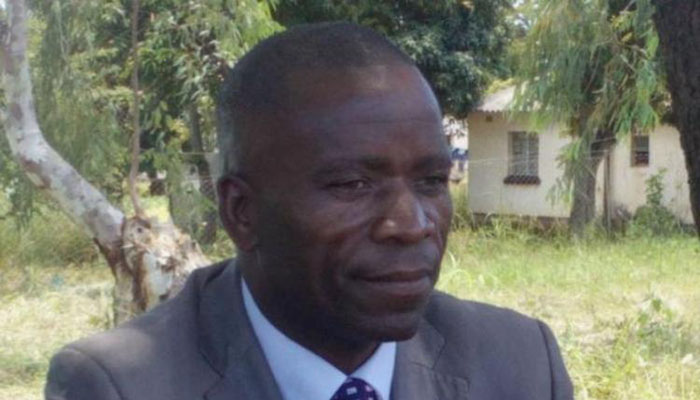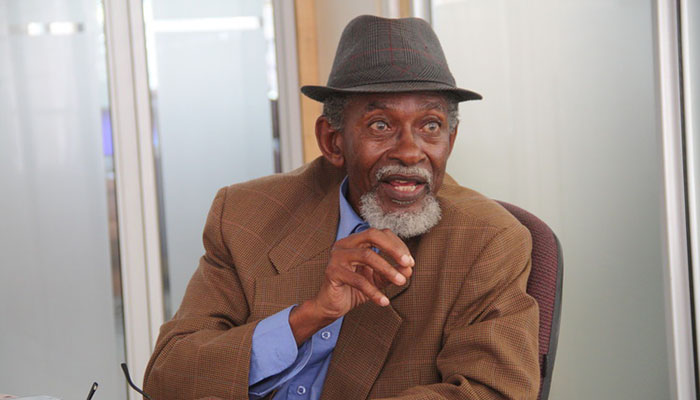
The Sunday Mail

Fatima Bulla and Tariro Charandura
THE recent clash between Johanne Masowe WeChishanu Bethlehem of Judea and a bereaved Budiriro family saw the family having to delay the burial of its four members after the church denied them body viewing.
This has brought to the fore the quandary that believers face when religious beliefs and traditions clash.
The deceased suffocated in a well last week.
The burial of Mr Cleopas Jokomera (63) and sons Maclliff, Tom and Cleopas Jr was postponed last Wednesday after church elders from the Johanne Masowe WeChishanu Bethlehem of Judea, where Mr Jokomera was a leader, said their church do not allow body viewing.
On Thursday, our sister paper, The Herald reported that there was a scuffle as church members blocked relatives from bringing down coffins from the truck transporting the bodies, stating that it was against church regulations to conduct body viewing.
In addition, they highlighted that the deceased leader had also handled some burials in the same manner and hence rules could not be bent for him.
By late Wednesday night, the bodies are reported to have been stuck in the truck.
According to the Webster’s Dictionary, tradition is a custom handed down from the past.
Professor of Sociology who is also the Bishop of Revival United Church of Christ, Marvellous Mhloyi, said while culture matches with tradition, religion is a belief system of the unseen.
“Christianity does not have to go hand in hand with tradition and culture because they are other Christian beliefs that do not agree with the two.
“However, body viewing sociologically brings closure to people. It doesn’t mean anything spiritually. Issues of body viewing came into place with the introduction of coffins,” she said.
“Body viewing is a matter of choice within a family. After death, the body is lifeless with no importance,” Prof Mhloyi added.
Chief Donald Kamba of Makoni District said intolerance means that religion is being used to destroy traditional values that inform the culture of African people.
“There is nothing religious, cultural, or traditional about banditry and insanity that define cases of cultism that are rampant in most so-called Christian organisations.
“Body viewing is a traditional practice that does not bar anyone from paying last respects to a person. Even the person suspected of taking the life of the dead person, whether through suspected witchcraft or food poisoning, is free to view the body,” Chief Kamba said.
“The Johanne Masowe scenario where family members were barred from viewing the body of their bloodline merely sharpens perspectives of the dire need to trace our roots and benefit from the incredible wisdom that underpins our traditions as a mirror of civilised behavior.
“The cardinal point that we are spiritual and hardly religious, if at all, is under the spotlight as people wonder what has become of us as an African people, with golden roots that speak humanity as found in morality, ethics and decency,” he said.
However, there seems to be confusion between the extent to which Christians can uphold religious beliefs while also observing their traditions as Africans.
Chairman of the Traditional Medical Practitioners Council, Sekuru Friday Chisanyu, said body viewing is permitted in the African way of life as a way of paying last respects and confirming if relatives are burying the correct body.
“Close elderly relatives and friends should actually view the whole body and confirm if every member of the body that makes up a person is still there.
“Many a times relatives of the deceased who remain behind will face many challenges because of the ignorance of not having performed the rituals required before their relative was buried,” Sekuru Chisanyu said.
“Relatives should bid farewell to the deceased before he or she goes back to the creator because this is where they came from. Some traditional practices and ethics never expire and hence should never be abandoned.
“In addition, witches are also within the churches and the reason for the denial of the body viewing is thus questionable. Why refuse body viewing? Body viewing was the way before and it should be conducted even now,” said Sekuru Chisanyu.
“In my opinion, no African person will ever be able to live as a complete Christian; they will be lying to themselves considering Christianity is a foreign belief and we have our own way of life,” affirmed Sekuru Chisanyu.
Apostolic Christian Council of Zimbabwe president, Bishop Johannes Ndanga said churches need to consider community relations even though they have regulations to observe.
“Body viewing is not sinful as said by members of apostolic churches who refuse to perform it. There are community relations that ought to be considered in such cases, even if body viewing was not allowed by the apostolic sect.
“People are always joined with society and hence there is need to compromise. The Johanne Masowe sect had to abandon the culture of burying people without coffins. Death is sacred and people should pay their last respects.
“Also there is no definite code for body viewing, it can be performed anyhow, depending on a combination of family beliefs,” Bishop Ndanga added.
Origins of body viewing
The tradition of body viewing has its merits in:
1 verifying that the person said to have died is in actual fact the one that has died,
2 ensuring even at the graveyard that the person lying in the grave is the same one viewed at the homestead and church,
3 confirming versions given by people assigned to bath, and clean the dead body as appropriate to cause of death and identity of the deceased,
4 avoiding incidences where relatives covet a person’s wealth and because of long absence from home. Some may invent his death, bury a goat or kill an innocent person in order to grab his property,
5 ensuring that everybody is given a fair and critical chance to give his last respects to the deceased,
6 qualifying a cultural norm that says the dead do no harm and even the sworn enemy of the deceased has the privilege to satisfy himself that the enemy is indeed dead and sends him off to his resting place through the practice of body viewing,
7 ensuring that even strangers can view the body and partake of food given to the mourners after the burial, a sign that the dead wishes good tidings even to strangers,
8 enforcing last physical impressions about the dead and this explains why burials are sometimes delayed to afford those who are far away the last chance to cast their eyes on the deceased.
Feedback: [email protected]






